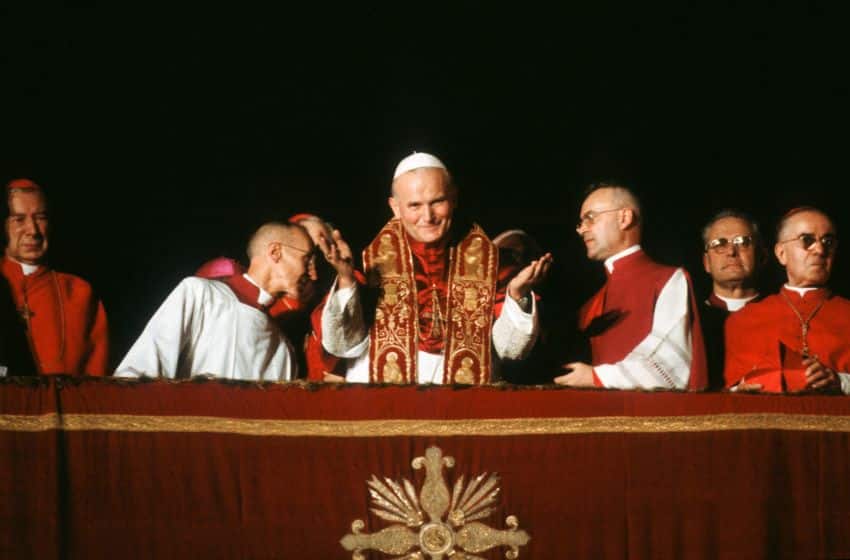
Dear Fr John Flader, You have written that the primacy of the Pope over the Church was accepted by the whole Church in the first centuries? What other indications of this acceptance are there?
Perhaps what I have already written is sufficient to show the universal acceptance of the primacy of the Pope by the whole Church in the early centuries, but in an important question like this, the more evidence we have, the better.
In the fourth century, Pope St Julius wrote in 342 to the Eusebians: “Why were we not written to concerning the Church of Alexandria? Or are you ignorant that this has been the custom first to write to us, and then what is just shall be decreed from this place … For what we have received from the blessed Apostle Peter, that I make known to you” (Athanasius, Apologia contra Arianos, 21, 33). This is another very important text, manifesting the custom of the Church in every part of the world – Alexandria was in the East – of referring important matters to Rome for a decision.
In another important testimony later in the fourth century, St Augustine wrote that “the primacy of the Apostolic chair always existed in the Roman Church” (Epist. 43, 7). That is, the great Doctor of the Church, who was a bishop in North Africa, testifies that there has always been someone with primacy over the whole Church, and that person is the bishop of Rome.
Another well-known statement of St Augustine is Roma locuta est, causa finita est, or Rome has spoken, the matter is settled. It derives from something St Augustine said in a sermon early in the fifth century, informing his people that the Pope had ratified the condemnations of the Pelagian heresy pronounced in the North African provincial councils of Milevi and Carthage. He said: “The two councils sent their decrees to the Apostolic See and the decrees quickly came back. The cause is finished; would that the error were as quickly finished (Sermon 131:10).” Although not expressed in the same words, this has come down to us over the centuries in the well-known formula. Augustine was commenting on the fact that councils held anywhere in the world are considered authoritative if approved by the bishop of Rome. And once Rome has spoken, the matter is settled.
Two centuries later the Eastern Father St Maximus the Confessor (ca 580-662) wrote that “from the incarnate Word’s descent to us, all Christian churches everywhere have held and hold the great Church that is here [in Rome] to be their only basis and foundation since, according to the Saviour’s promise, the gates of hell have never prevailed against her” (Opuscula theo.).
As if summing up this doctrine and practice, the seventeenth ecumenical Council of Florence (1431-1445), with the participation of bishops of both East and West, declared that “the Roman Pontiff is the successor of blessed Peter, Prince of the Apostles and the true Vicar of Christ, the head of the whole Church, the father and teacher of all Christians, and that to him, in blessed Peter, there was given by Our Lord Jesus Christ full power to feed, rule and govern the universal Church” (DS 1307).
In the nineteenth century Pope Gregory XVI repeated this teaching: “It has always been the common and firm understanding of Catholics and a dogma of faith that the Roman Pontiff, the successor of St Peter, has a primacy over the whole Church, not only of honour but also of authority and jurisdiction, and that therefore the bishops themselves are subject to him (Commissum Divinitus, 15 June 1835).
In summary, the Catholic faith regarding the Pope’s primacy over the whole Church has been ardently defended throughout twenty centuries. It was solemnly defined as dogma by the First Vatican Council and has been restated by the Second Vatican Council: “This teaching concerning the institution, the permanence, the nature and import of the sacred primacy of the Roman Pontiff and his infallible teaching office, the sacred synod proposes anew to be firmly believed by all the faithful” (LG, 18). The edifice of the entire Church rests on this teaching, against which the powers of the devil or of death cannot prevail.
